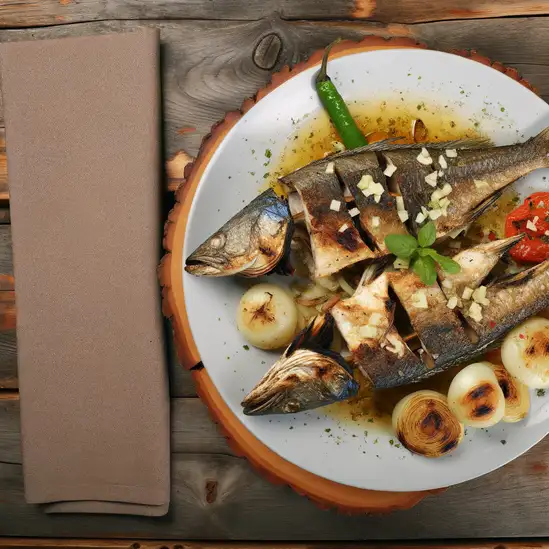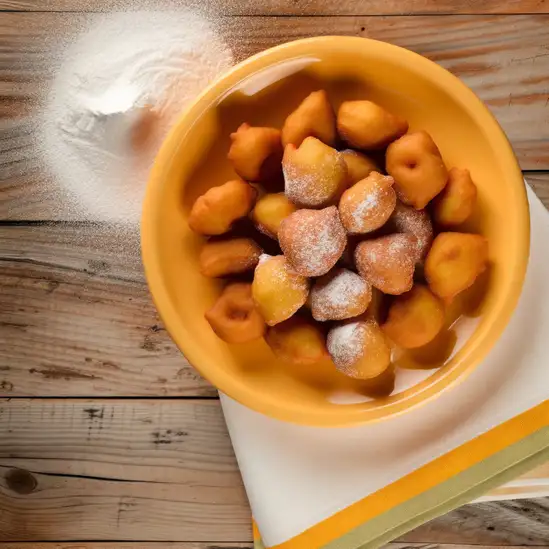



If you ever find yourself dreaming of a place where the sea meets rugged cliffs and the air carries a salty,pine-scented breeze,Baška on the island of Krk is exactly that kind of magic. The moment you step onto its pebbled beach,you’re greeted by the gentle lapping of crystal-clear waves,the sun warming your skin,and the distant chatter of families and friends soaking in the laid-back rhythm of island life. It’s a place where time slows down just enough for you to savor the simple joys—like the taste of freshly caught seafood grilled with a squeeze of local lemon,or the rich aroma of lavender and rosemary wafting from nearby gardens. Baška’s charm isn’t just in its stunning coastline but in its warm,welcoming spirit. The town’s narrow streets invite you to wander,lined with quaint stone houses and cozy taverns where locals share stories over glasses of homemade wine. There’s a genuine sense of community here,a blend of old-world tradition and easygoing island culture that makes you feel like you’ve stumbled into a friend’s summer retreat. What really sets Baška apart is its connection to nature and history. Beyond the beach,you can hike trails that reveal breathtaking views of the Adriatic’s endless blue,or explore ancient churches and the famous Baška Tablet,a treasure of Croatian heritage. Whether you’re diving into the sea,savoring a gelato by the harbor,or simply watching the sunset paint the sky in shades of pink and gold,Baška leaves you with a feeling of peaceful joy and a longing to return.
The information on this page is currently being reviewed by Tripkliq and should be used as a guide only
Eng word: Hello
Eng pronunciation: Bohk
Local language: Bok
Eng word: Goodbye
Eng pronunciation: Doh-vee-jen-ya
Local language: Doviđenja
Eng word: Thank you
Eng pronunciation: Hvah-lah
Local language: Hvala
Eng word: How much
Eng pronunciation: Koh-lee-koh
Local language: Koliko
Eng word: Toilet
Eng pronunciation: Toh-ah-let
Local language: Toalet
Eng word: Help me
Eng pronunciation: Poh-moh-zee mee
Local language: Pomozi mi
Eng word: Yes
Eng pronunciation: Dah
Local language: Da
Eng word: No
Eng pronunciation: Neh
Local language: Ne
Eng word: Excuse me
Eng pronunciation: Oh-proh-stee-teh
Local language: Oprostite
The Baška Tablet, dating back to 1100 AD, is one of the oldest and most significant monuments of Croatian literacy. It is a large stone inscribed in Glagolitic script and was found in the Church of St. Lucy in Jurandvor, near Baška.
The Church of St. Lucy in Jurandvor is famous for housing the Baška Tablet. This Romanesque church is a significant cultural and historical site, attracting many visitors interested in medieval Croatian history.
Stara Riva, the old waterfront in Baška, is a charming area that showcases the town's rich maritime history. It is a perfect place for a leisurely stroll while enjoying the scenic views of the Adriatic Sea.
Baška is known for its traditional stone houses with red-tiled roofs, narrow streets, and picturesque squares. This architectural style reflects the town's historical and cultural heritage.
The Church of the Holy Trinity, built in the 18th century, is one of Baška's most prominent landmarks. Its baroque architecture and beautiful interior make it a must-visit for history and art enthusiasts.
Baška has a long maritime tradition, with fishing and seafaring being integral parts of its history. The town's maritime museum offers insights into the lives of local fishermen and sailors over the centuries.
Vela Plaža is Baška's most famous beach, stretching over 1.8 kilometers. This pebble beach has been a popular destination since the early 20th century, attracting tourists with its crystal-clear waters and stunning scenery.
Baška is surrounded by beautiful hiking trails that offer breathtaking views of the Adriatic Sea and the surrounding mountains. These trails have been used for centuries by locals and are now popular among tourists seeking outdoor adventures.
Baška hosts several cultural festivals throughout the year, celebrating its rich heritage. Events like the Baška International Guitar Festival and the Fishermen's Night offer visitors a chance to experience local traditions and music.
In Baška, the most common Power Adaptor is Type C, Type F.



A slow-cooked dish made with meat (usually lamb or octopus) and vegetables, prepared under a bell-like lid covered with embers, resulting in tender and flavorful food.

Grilled fish, often fresh catch from the Adriatic Sea, seasoned simply with olive oil, garlic, and herbs, showcasing the local seafood.

Small, sweet doughnuts flavored with citrus and often dusted with powdered sugar, popular as a dessert or snack.

A Dalmatian beef stew marinated in vinegar and spices, slow-cooked with prunes and served with gnocchi or homemade pasta.

While not a dish, the local olive oil is renowned for its quality and is often used in various dishes or enjoyed with bread.

A traditional handmade pasta typical of the region, often served with a variety of sauces, including a rich meat or tomato sauce.

If you ever find yourself wandering through Split,it’s like stepping into a living,breathing storybook where ancient history and vibrant modern life dance together effortlessly. The moment you stroll along the Riva promenade,the salty breeze from the Adriatic mingles with the aroma of fresh espresso and grilled seafood wafting from nearby cafés. Locals chat animatedly in the sun-dappled squares,their laughter blending with the distant hum of boats bobbing gently in the harbor. There’s a laid-back energy here that feels both timeless and alive,inviting you to slow down and soak it all in.
Split’s heart beats strongest in Diocletian’s Palace,a sprawling Roman fortress that’s less a museum and more a neighborhood where people live,shop,and gather. Walking through its ancient stone alleys,you’ll catch glimpses of colorful markets,artisan shops,and cozy taverns tucked into centuries-old walls. At night,the city transforms as lanterns flicker on,and the sound of live klapa singing—traditional a cappella harmonies—drifts through the air,wrapping you in a warm,soulful embrace.
What really makes Split unforgettable is how effortlessly it blends the old with the new. You can savor a plate of fresh octopus salad while watching fishermen haul in their catch,then wander to a rooftop bar for a cocktail as the sun sets behind the islands. It’s a place where every corner tells a story,every meal feels like a celebration,and every moment invites you to become part of its ongoing tale.
If you ever find yourself wandering through the sun-drenched streets of Dubrovnik,you’ll immediately feel like you’ve stepped into a living storybook. The city’s ancient stone walls rise proudly against the sparkling Adriatic,and as you stroll along the marble-paved Stradun,the salty sea breeze mingles with the scent of fresh pine and blooming bougainvillea. There’s a rhythm here—a gentle hum of life where history and modern charm dance together effortlessly.
Dubrovnik’s character is woven into every corner:the clatter of café cups,the murmur of locals chatting in cozy taverns,and the distant call of seagulls overhead. You can almost taste the city in the air—briny and fresh,with hints of grilled seafood and ripe figs from the markets. Sitting at a seaside restaurant,watching the sun dip behind the fortress walls,you’ll savor dishes bursting with Mediterranean flavors,paired with a glass of crisp Croatian white wine.
What makes Dubrovnik truly special is how it balances its rich past with a vibrant present. The city’s narrow alleys invite exploration,revealing tucked-away galleries,artisan shops,and lively squares where music spills out into the streets. Whether you’re tracing the footsteps of ancient mariners or simply soaking up the golden light on a quiet terrace,Dubrovnik feels like a warm embrace—inviting,timeless,and utterly unforgettable.
If you ever find yourself wandering the Dalmatian coast,Zadar is one of those places that sneaks up on you with its quiet charm and unexpected magic. The moment you step onto its ancient stone streets,there’s this warm,timeless feeling—like the city is gently humming a tune just for you. The salty breeze from the Adriatic mingles with the scent of fresh pine and blooming jasmine,wrapping around you as you stroll along the waterfront. It’s a place where history isn’t just in museums; it’s alive in the crumbling Roman ruins,the medieval churches,and the lively squares where locals gather to chat and sip coffee.
What really sets Zadar apart is its playful spirit. You’ll hear it in the waves as they dance through the Sea Organ,an extraordinary installation that turns the sea’s movement into haunting melodies. And just a few steps away,the Sun Salutation lights up the night with a mesmerizing display of colors,making the waterfront feel like a celebration of nature and art. Grab a seat on the stone benches,watch the sun dip below the horizon,and you’ll understand why Alfred Hitchcock once called Zadar the most beautiful sunset in the world.
The city’s vibe is relaxed but vibrant,with cozy konobas serving up fresh seafood and local wines that taste like the essence of the region. Whether you’re wandering through the bustling market,exploring narrow alleys,or simply soaking in the views from a café terrace,Zadar invites you to slow down,breathe deeply,and savor every moment.
Imagine stepping into a sun-drenched town where lavender-scented breezes mingle with the salty kiss of the Adriatic Sea—that’s Hvar for you. From the moment you wander through its ancient stone streets,there’s a relaxed yet vibrant energy that wraps around you like a warm embrace. The sunlight bounces off terracotta rooftops,and the sound of laughter spills out from cozy cafés where locals sip espresso and chat animatedly. It’s a place where history and modern life dance effortlessly together.
As you stroll along the harbor,sleek yachts bob gently beside fishing boats,and the air carries the faint aroma of grilled seafood and fresh herbs. The town’s medieval walls and the imposing fortress overlooking the bay tell stories of centuries past,while the lively markets burst with ripe figs,olives,and sun-ripened tomatoes. At sunset,the sky blazes in shades of pink and gold,and the waterfront buzzes with music drifting from open-air bars,inviting you to linger just a little longer.
What makes Hvar truly special is its blend of authenticity and joie de vivre. It’s not just a place to see but a place to feel—whether you’re savoring a glass of local Plavac Mali wine,exploring hidden coves by boat,or simply watching the world go by from a shaded terrace. Hvar’s charm lies in its ability to make you slow down,breathe deeply,and soak in the simple pleasures of life by the sea.
If you ever find yourself wandering the Istrian coast,Pula is the kind of place that wraps around you like a warm,familiar hug. There’s this effortless blend of ancient history and laid-back seaside charm that makes the city pulse with life. Imagine strolling through streets where Roman ruins peek out from behind cozy cafes,their stone walls whispering stories of gladiators and emperors. The air carries a salty breeze mixed with the aroma of fresh seafood grilling nearby,and the chatter of locals and tourists blends into a lively,welcoming hum.
What really sets Pula apart is its character—it''s not just a city frozen in time but one that wears its history with pride while embracing the present. You’ll find yourself lingering in the shadow of the massive amphitheater,marveling at how it’s still so alive,hosting concerts and events that make the ancient stones vibrate with modern energy. The narrow alleys invite you to explore little artisan shops and family-run trattorias where you can savor Istrian truffles,fresh olives,and a glass of local Malvazija wine that tastes like sunshine.
Evenings in Pula have a special magic. The golden light softens the city’s edges,and the sea reflects a palette of pinks and purples. Sitting by the harbor,you can hear the gentle lapping of waves and the distant laughter from a nearby tavern. It’s a place that feels both timeless and alive,where every corner invites you to slow down,breathe in the moment,and soak up a culture that’s as rich as the land itself.
If you ever find yourself dreaming of a place where the sea breeze carries the scent of pine and fresh espresso,Rovinj should be at the top of your list. Walking through its narrow,cobbled streets feels like stepping into a living postcard—colorful houses lean into each other,their pastel facades glowing warmly in the afternoon sun. The town hums with a gentle rhythm:fishermen mending nets by the harbor,the distant chatter of locals sharing stories over glasses of Malvazija wine,and the soft lapping of waves against ancient stone walls.
What really makes Rovinj special is its blend of old-world charm and vibrant life. The scent of grilled seafood wafts from seaside tavernas,mingling with the salty air,tempting you to sit down and savor freshly caught calamari or a plate of truffle pasta. Climbing the bell tower of St. Euphemia’s Church rewards you with sweeping views of terracotta rooftops and the shimmering Adriatic stretching out to the horizon. It’s a place where history whispers from every corner,yet the energy feels alive and inviting.
Beyond the town,the surrounding nature invites you to explore—whether it’s cycling through fragrant pine forests or dipping into crystal-clear coves. Rovinj isn’t just a destination; it’s a feeling of slow,joyful discovery,where every moment invites you to pause,breathe,and soak in the simple pleasures of coastal life.
Vendors may charge exorbitant prices for beach chairs and umbrellas, or claim that tourists must rent them to access certain areas of the beach.
Unlicensed currency exchange offices may offer poor exchange rates or charge hidden fees, taking advantage of tourists unfamiliar with the local currency.
Scammers create fake rental listings for apartments or holiday homes, asking for deposits upfront. Tourists arrive to find the property doesn't exist or is already occupied.
Unlicensed individuals may pose as tour guides, offering subpar or inaccurate tours while charging high fees upfront.
Tourists may be charged excessive fees for parking, especially in high-demand areas near beaches or attractions. Some attendants may claim higher rates than officially posted.
Some restaurants may inflate bills by adding items not ordered or charging higher prices than those listed on the menu, especially in tourist-heavy areas.
Vendors may sell counterfeit goods, low-quality souvenirs, or claim items are handmade or locally produced when they are not.
Some taxi drivers may take longer routes or fail to use the meter, charging tourists significantly more than the standard fare.
The possession, use, and distribution of illegal drugs are strictly prohibited in Baška, Croatia. Croatia has stringent drug laws, and violations can result in severe penalties, including fines and imprisonment. Tourists should avoid any involvement with illegal drugs to ensure a safe and trouble-free visit.
In Baška, Croatia, smoking is generally allowed in outdoor public spaces. However, smoking is prohibited in enclosed public areas such as restaurants, bars, and public transportation. Some establishments may have designated smoking areas. It is always a good idea to look for 'No Smoking' signs and adhere to local regulations to avoid fines.
Vaping in Baška follows similar regulations to smoking. It is generally allowed in outdoor public spaces but prohibited in enclosed public areas. Some restaurants and bars may have specific policies regarding vaping, so it is advisable to ask or look for signs indicating whether vaping is permitted.
What are other people saying about Baška?
Recent Social posts about Baška
There is nothing to show you for now.